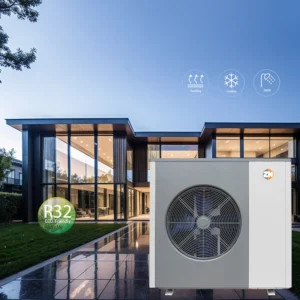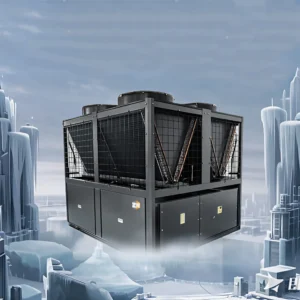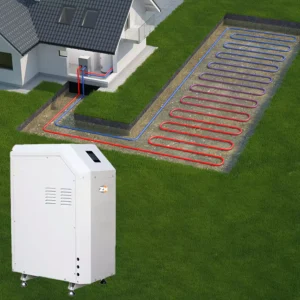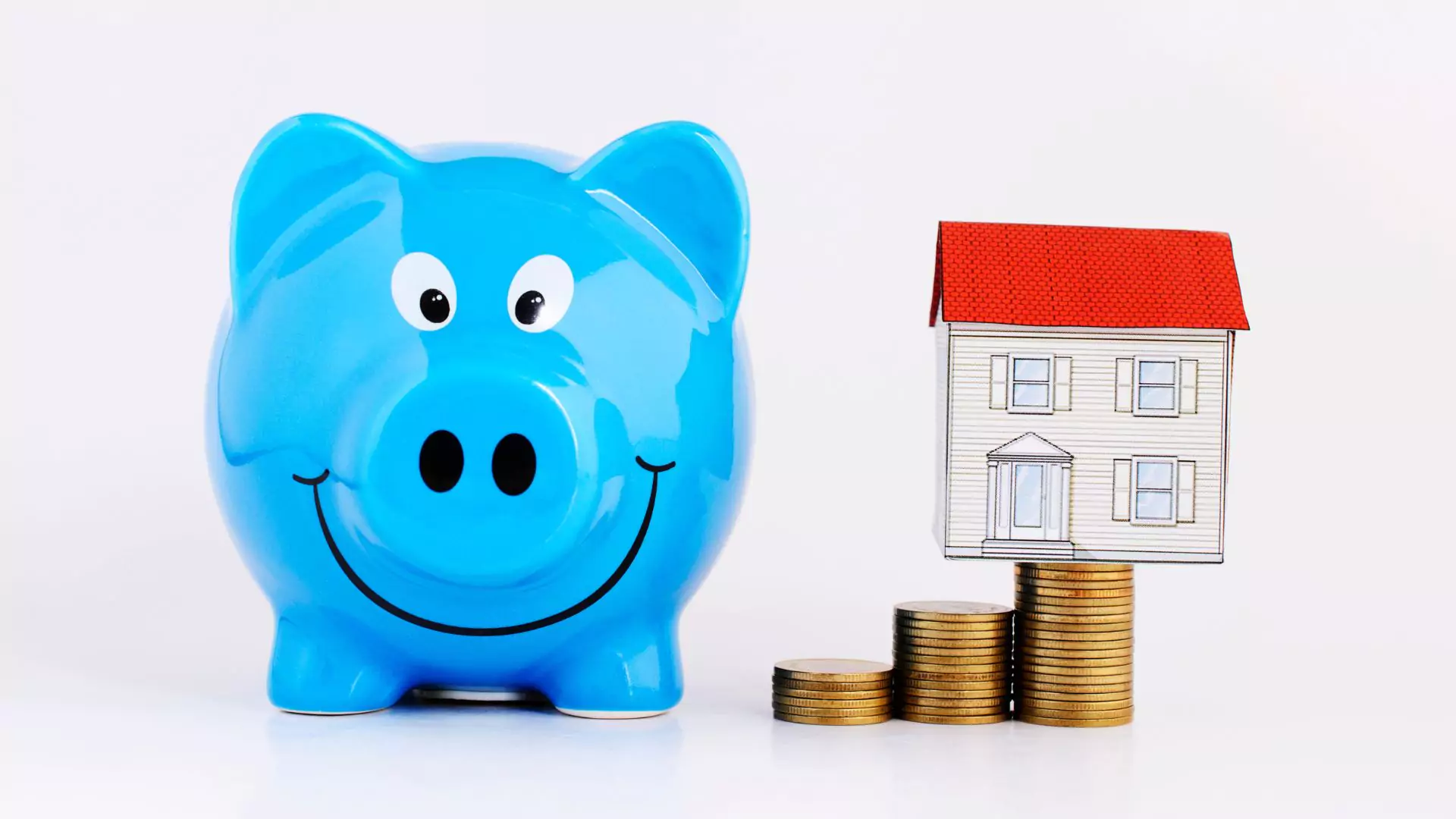💡 نظرة عامة على تكلفة المضخة الحرارية السريعة 2025
| نوع المضخة الحرارية | نطاق التكلفة | الوفورات السنوية | الائتمان الضريبي الفيدرالي |
|---|---|---|---|
| مصدر الهواء | $4,000 – $12,000 | $600 – $800 | 30% (حتى $2,000) |
| ميني سبليت بدون أنابيب | $2,000 – $14,500 | $500 – $700 | 30% (حتى $2,000) |
| الطاقة الحرارية الأرضية | $6,000 – $30,000+ | $800 – $1,200 | 30% (حتى $2,000) |
🎯 الوجبات الرئيسية
- متوسط التركيب: يدفع معظم مالكي المنازل حوالي $8,348 لأنظمة أنابيب الهواء ذات المصدر الهوائي
- توفير الطاقة: تخفيض يصل إلى 751 تيرابايت 3 تيرابايت في تكاليف التدفئة مقارنة بالمقاومة الكهربائية
- أفضل عائد على الاستثمار: توفر أنظمة الطاقة الحرارية الأرضية أعلى وفورات على المدى الطويل على الرغم من ارتفاع التكاليف الأولية
- أفضل العلامات التجارية 2025: تتصدر ترين وكاريير وجودمان وACiQ تصنيفات الموثوقية
1. جدول نظرة عامة سريعة على التكلفة
حاسبة الاستثمار في المضخات الحرارية
قبل الغوص في التفاصيل، دعنا نحلل ما يمكن أن تتوقع إنفاقه على أنظمة المضخات الحرارية المختلفة في عام 2025. بالإضافة إلى ذلك، يساعدك فهم العائد المحتمل على الاستثمار في اتخاذ قرارات أكثر ذكاءً لمنزلك.
💰 الخيار الأكثر شعبية
المضخات الحرارية الهوائية المصدر
- التكلفة: $4,000 - $12,000
- الأفضل لـ المناخ المعتدل
- الاسترداد: 8-12 سنة
- الكفاءة: حتى 18 SEER2
🏠 حل مرن
وحدات مدمجة صغيرة بلا أنابيب
- التكلفة: $2,000 - $14,500
- الأفضل لـ المنازل بدون مجاري هواء
- الاسترداد: 6-10 سنوات
- المناطق: 1-8 وحدات داخلية
"أصبحت المضخات الحرارية الحل المفضل لأصحاب المنازل الذين يتطلعون إلى خفض تكاليف الطاقة مع الحفاظ على الراحة على مدار العام. لقد تقدمت التكنولوجيا بشكل كبير، مما يجعلها قابلة للتطبيق حتى في المناخات الباردة." - د. سارة جونسون، خبيرة في مجال التدفئة والتهوية وتكييف الهواء
التباينات في التكلفة الإقليمية
علاوة على ذلك، تختلف تكاليف المضخات الحرارية بشكل كبير حسب الموقع بسبب أسعار العمالة ومتطلبات التصاريح والاعتبارات المناخية. ومع ذلك، يظل الائتمان الضريبي الفيدرالي ثابتاً على الصعيد الوطني.
| المنطقة | مضاعف تكلفة العمالة | رسوم التصاريح | عامل المناخ |
|---|---|---|---|
| الشمال الشرقي | 1.2 ضعف - 1.5 ضعف | $150 – $300 | المناخ البارد مطلوب |
| الجنوب الشرقي | 0.8x - 1.0x | $50 – $150 | الطرازات القياسية جيدة |
| الساحل الغربي | 1.3x - 1.8x | $100 – $250 | يختلف حسب الارتفاع |
2. توزيع تكلفة المضخة الحرارية لعام 2025 حسب النوع
المضخات الحرارية الهوائية المصدر: الخيار الشائع
وتمثل المضخات الحرارية المعتمدة على مصدر الهواء الخيار الأكثر شيوعاً لأصحاب المنازل في عام 2025، حيث توفر توازناً ممتازاً بين التكلفة والكفاءة. علاوة على ذلك، تعمل هذه الأنظمة بشكل جيد في معظم المناخات وتندمج بسهولة مع شبكات مجاري الهواء الحالية.
إن يبلغ متوسط تكلفة التركيب حوالي $8,348,348 استنادًا إلى بيانات السوق الحديثة. ومع ذلك، يمكن أن تتراوح الأسعار من $4,000 للوحدات الأساسية إلى $12,000 للأنظمة عالية الكفاءة ذات الميزات المتقدمة.
💡 نصيحة محترف
عادةً ما تكلف المضخة الحرارية ذات مصدر الهواء سعة 2 طن حوالي $6,500 دولار أمريكي لتركيبها ويمكنها التعامل مع معظم المنازل التي تتراوح مساحتها بين 1200 و1500 قدم مربع بكفاءة.
أنظمة التقسيم المصغرة بدون أنابيب: حلول مرنة
توفر المضخات الحرارية الصغيرة بدون مجاري هواء مرونة مذهلة للمنازل التي لا تحتوي على مجاري هواء. بالإضافة إلى ذلك، فهي توفر إمكانية التحكم في المناطق، مما يسمح لك بتدفئة أو تبريد مناطق محددة حسب الحاجة.
متوسط تكاليف الوحدة الواحدة $3,000بينما يمكن أن تصل تكلفة الأنظمة متعددة المناطق إلى $14,500 للمنازل الكبيرة. ومع ذلك، فإن وفورات الطاقة غالباً ما تبرر الاستثمار في غضون 6-8 سنوات.
منطقة واحدة
$2,000 – $4,000
مثالية لغرفة واحدة أو شقة صغيرة
متعدد المناطق (2-4 وحدات)
$6,000 – $10,000
مثالية للمنازل متوسطة الحجم
منزل كامل (5 وحدات فأكثر)
$10,000 – $14,500
حل متكامل للراحة المنزلية
المضخات الحرارية الأرضية الحرارية: الكفاءة القصوى
تمثل أنظمة الطاقة الحرارية الأرضية الخيار الأفضل في تكنولوجيا المضخات الحرارية. على الرغم من أنها تتطلب استثمارًا مقدمًا أعلى ($6,000 - $30,000+)، إلا أنها تحقق أكبر قدر من الوفورات والفوائد البيئية على المدى الطويل.
"يمكن لمضخات الحرارة الجوفية الحرارية الأرضية أن تدوم لأكثر من 25 عاماً للمكونات الداخلية وأكثر من 50 عاماً للحلقة الأرضية. عندما تأخذ في الاعتبار طول العمر والكفاءة، فإنها غالباً ما توفر أفضل تكلفة إجمالية للملكية." - مارك تومبسون، مهندس أنظمة الطاقة الحرارية الأرضية
يختلف تعقيد التركيب بناءً على جيولوجيا الممتلكات الخاصة بك والمساحة المتاحة. تتطلب الحلقات الأفقية مساحة أكبر من الأرض، بينما تحتاج الحلقات الرأسية إلى معدات حفر متخصصة.
3. ما الذي يؤثر على سعر المضخة الحرارية
حجم المنزل ومتطلبات سعة المنزل
يؤثر حجم منزلك بشكل مباشر على تكاليف المضخة الحرارية لأن المساحات الكبيرة تتطلب أنظمة أكثر قوة. بشكل عام، تحتاج إلى حوالي طن واحد من السعة لكل 500-600 قدم مربع من مساحة المعيشة.
ومع ذلك، فإن عوامل مثل جودة العزل وارتفاع السقف وكفاءة النوافذ تؤثر أيضاً على متطلبات التحجيم. ولذلك، تضمن لك حسابات الأحمال الاحترافية الحصول على الحجم المناسب للنظام دون دفع مبالغ زائدة.
| حجم المنزل | السعة الموصى بها | نطاق التكلفة النموذجية |
|---|---|---|
| 1,000 - 1,200 قدم مربع | 1.5 - 2 طن | $4,000 – $7,000 |
| 1,500 - 2,000 قدم مربع | 2.5 - 3 أطنان | $6,000 – $9,000 |
| 2,500 - 3,000 قدم مربع | 3.5 - 4 أطنان | $8,000 – $12,000 |
تصنيفات الكفاءة وتأثير SEER2
تؤثر تصنيفات SEER2 (نسبة كفاءة الطاقة الموسمية 2) بشكل كبير على كل من سعر الشراء وتكاليف التشغيل. تعني تقييمات SEER2 الأعلى كفاءة أفضل ولكن أيضًا تكاليف أعلى مقدمًا.
والأهم من ذلك، تقع نقطة الكفاءة المثالية لمعظم مالكي المنازل بين 15-18 SEER2. أما ما يزيد عن 18 SEER2، فإن التكلفة الإضافية لا تبرر في كثير من الأحيان المكاسب الهامشية في الكفاءة.
🔥 دليل تقييم SEER2
- 14-15 SEER2: كفاءة قياسية، بأقل تكلفة ($3,500-$5,500)
- 16-17 SEER2: كفاءة جيدة، وتكلفة معتدلة ($4,500-$7,000)
- 18-20 SEER2: كفاءة عالية، تكلفة ممتازة ($6,000-$9,500)
- 20+ SEER2: كفاءة عالية جداً، بأقصى تكلفة ($8,000+)
عوامل تعقيد التثبيت
يمكن أن يؤثر تعقيد التركيب بشكل كبير على التكلفة النهائية للمضخة الحرارية. الاستبدالات البسيطة تكلفتها أقل من التركيبات الجديدة التي تتطلب تعديلات في مجاري الهواء أو ترقيات كهربائية.
علاوة على ذلك، غالبًا ما تحتاج المنازل القديمة إلى ترقيات للوحات الكهربائية للتعامل مع متطلبات طاقة المضخة الحرارية. يمكن أن يضيف هذا العمل الإضافي $1,000-$5,000 إلى تكلفة مشروعك.
❌ الزيادات في التكاليف
- لا توجد مجاري هواء موجودة
- التحسينات الكهربائية اللازمة
- المناطق التي يصعب الوصول إليها
- تصاريح البناء المتعددة
✅ توفير التكاليف
- مجاري الهواء الحالية في حالة جيدة
- خدمة كهربائية كافية
- سهولة الوصول إلى المعدات
- تركيب الاستبدال البسيط
4. فرص توفير المال
الإعفاءات والحوافز الضريبية الفيدرالية
تقدم الحكومة الفيدرالية حوافز كبيرة لتشجيع اعتماد المضخات الحرارية. والأهم من ذلك، يمكنك المطالبة بـ 30% ائتمان ضريبي يصل إلى $2,000 على أنظمة المضخات الحرارية المؤهلة التي تم شراؤها وتركيبها حتى عام 2032.
بالإضافة إلى ذلك، قد تكون التحسينات ذات الصلة مثل ترقيات اللوحات الكهربائية وتحسينات العزل مؤهلة للحصول على ائتمانات منفصلة. يمكن أن تقلل هذه الحوافز من التكلفة الفعالة للمضخة الحرارية بآلاف الدولارات.
💰 الحد الأقصى للائتمان الضريبي الموزّع
- نظام المضخة الحرارية: 30% ما يصل إلى $2,000 سنوياً
- ترقية اللوحة الكهربائية: 30% حتى $600
- تحسينات العزل: 30% حتى $1,200
- إجمالي الوفورات المحتملة: ما يصل إلى $3,800 في السنة
برامج التخفيضات الحكومية والمحلية
تقدم العديد من الولايات والمرافق العامة خصومات إضافية تتراكم مع الائتمانات الفيدرالية. تختلف هذه البرامج بشكل كبير حسب الموقع ولكنها يمكن أن توفر مدخرات إضافية كبيرة.
على سبيل المثال، تقدم بعض المرافق العامة خصومات تتراوح بين $1,000 و1T4T3,000 للمضخات الحرارية عالية الكفاءة. لذلك، يساعدك التحقق من موقع الويب الخاص بالمرافق المحلية أو زيارة موقع DSIRE.org في تحديد البرامج المتاحة في منطقتك.
"يبحث أصحاب المنازل الأذكياء عن جميع الحوافز المتاحة قبل الشراء. لقد رأيت أن إجمالي المدخرات يتجاوز 501 تيرابايت من تكلفة النظام عندما تتوافق الحوافز الفيدرالية وحوافز الولاية والمرافق العامة." - جينيفر مارتينيز، استشاري كفاءة الطاقة
تحليل وفورات الطاقة على المدى الطويل
توفر المضخات الحرارية وفورات مذهلة في الطاقة على المدى الطويل، وغالباً ما تبرر التكاليف الأولية الأعلى. وعلى وجه التحديد، يمكنها تقليل استخدام طاقة التدفئة بنسبة تصل إلى 75% مقارنةً بالتدفئة الكهربائية المقاومة.
تتراوح الوفورات السنوية عادةً من $600-1T4T4T1,200 حسب نظام التدفئة الحالي وأسعار الطاقة المحلية والمناخ. وبالتالي، يرى معظم مالكي المنازل أن فترات الاسترداد تتراوح بين 5-12 سنة.
مقابل المقاومة الكهربائية
75%
الحد من استخدام الطاقة
مقابل فرن الغاز
40%
الحد من استخدام الطاقة
انبعاثات الكربون
40%
التخفيض مقابل الغاز
5. أفضل موديلات المضخات الحرارية لعام 2025
أفضل الماركات والموديلات الأمريكية
تصنّف تقارير المستهلكين العديد من العلامات التجارية في مرتبة عالية من حيث الموثوقية ورضا المالكين بناءً على استطلاعات شملت أكثر من 10,000 مضخة حرارية تم شراؤها بين عامي 2017-2023. علاوة على ذلك، تقدم هذه العلامات التجارية أداءً ممتازاً باستمرار في مختلف الظروف المناخية.
ACiQ 2 طن 18 SEER2
$3,951
نظام عاكس عالي الكفاءة مزود بمبرد R32 لتحقيق الأداء الأمثل
جوودمان 1.5 طن 15.2 SEER2
$3,794
نظام مجزأ R32 موثوق به مع معالج هواء متعدد المواضع
ترين XV20i متغير السرعة XV20i
$7,500 – $9,000
تقنية متميزة متغيرة السرعة مع تحكم فائق بالراحة
تمثل هذه الطرازات عروض قيمة ممتازة، حيث تجمع بين الموثوقية المثبتة وميزات الكفاءة المتقدمة. علاوة على ذلك، فهي تأتي مع ضمانات شاملة وشبكات دعم قوية من الوكلاء.
تصنيفات موثوقية العلامة التجارية
استناداً إلى بيانات تقارير المستهلك، تتفوق بعض العلامات التجارية باستمرار على علامات تجارية معينة في الموثوقية ورضا العملاء على المدى الطويل. بالإضافة إلى ذلك، تلعب تغطية الضمان وتوفر الخدمة أدواراً حاسمة في تجربة الملكية الإجمالية.
| العلامة التجارية | درجة الموثوقية | رضا المالك | الضمان |
|---|---|---|---|
| ترين | ⭐⭐⭐⭐⭐ | 92% | 12 سنة |
| الناقل | ⭐⭐⭐⭐⭐ | 90% | 10 سنوات |
| جودمان | ⭐⭐⭐⭐ | 87% | 10 سنوات |
| ACiQ | ⭐⭐⭐⭐ | 85% | 7-10 سنوات |
مصنعو المضخات الحرارية الصينية ODM/مصنعي المعدات الأصلية
تعتمد سوق المضخات الحرارية العالمية بشكل متزايد على المصنعين الصينيين للحصول على حلول فعالة من حيث التكلفة وعالية الجودة. وعلى وجه التحديد, حلول المضخات الحرارية ZN (Zhongnuan) تمثل شركة تصنيع رائدة متخصصة في خدمات تصنيع التصميم الأصلي/ تصنيع المعدات الأصلية للأسواق الدولية.
🏭 التميز في تصنيع المضخات الحرارية ZN
تقدم ZN حلول تصنيع شاملة عبر ثلاث فئات رئيسية، مما يوفر مزايا من حيث التكلفة للطلبات بالجملة مع الحفاظ على معايير جودة التصدير.

المضخات الحرارية السكنية
حلول موفرة للطاقة للمنازل مع ميزات وخيارات سعة قابلة للتخصيص

المضخات الحرارية التجارية
أنظمة واسعة النطاق للشركات ذات البنية القوية وتصنيفات الكفاءة العالية

المضخات الحرارية الأرضية الحرارية
أنظمة المصدر الأرضي لتحقيق أقصى قدر من الكفاءة مع تقنية تحكم متقدمة
"لقد أحدث المصنعون الصينيون مثل ZN ثورة في إمكانية الوصول إلى المضخات الحرارية من خلال تقديم حلول تصنيع المعدات الأصلية التي تلبي معايير الجودة العالمية بأسعار تنافسية. وقد جعل هذا تكنولوجيا المضخات الحرارية في متناول المقاولين وأصحاب المنازل في جميع أنحاء العالم." - روبرت تشين، أخصائي التجارة الدولية للتدفئة والتهوية وتكييف الهواء والتبريد والتكييف
المزايا الرئيسية لتصنيع ZN
توفر قدرات ZN في مجال تصنيع المعدات الأصلية/مصنعي المعدات الأصلية العديد من المزايا لمقاولي التدفئة والتهوية وتكييف الهواء والموزعين والمشترين على نطاق واسع. وعلاوةً على ذلك، تتيح قدرات التصنيع المخصّصة لديهم فرصاً للعلامات التجارية الخاصة والتطبيقات المتخصصة.
💰 مزايا التكلفة
- تسعير الطلب بالجملة
- أسعار الشركة المصنعة المباشرة
- انخفاض تكاليف التوزيع المخفضة
- خيارات المواصفات المخصصة
🏆 معايير الجودة
- شهادات جودة التصدير
- معايير السلامة الدولية
- بروتوكولات اختبار صارمة
- برامج التحسين المستمر
6. المضخة الحرارية مقابل تكاليف التدفئة التقليدية
مقارنة الاستثمار المقدم
عند المقارنة بين المضخات الحرارية وأنظمة التدفئة التقليدية، يختلف الاستثمار الأولي بشكل كبير. ومع ذلك، فإن فهم التكلفة الإجمالية للملكية يكشف عن القيمة الحقيقية لكل خيار.
عادةً ما تكون تكلفة أفران الغاز أقل مقدماً ($3,000-$10,000) مقارنةً بالمضخات الحرارية ($4,000-$12,000 لمصدر الهواء). ومع ذلك، توفر المضخات الحرارية كلاً من التدفئة والتبريد، مما يلغي الحاجة إلى أنظمة تكييف هواء منفصلة.
🔍 تحليل التكلفة الإجمالية للنظام
| نوع النظام | تكلفة التدفئة | تكلفة التكييف | التكلفة الإجمالية |
|---|---|---|---|
| المضخة الحرارية | $4,000-$12,000 | متضمنة | $4,000-$12,000 |
| فرن غاز + مكيف غاز + مكيف | $3,000-$10,000 | $3,000-$8,000 | $6,000-$18,000 |
تحليل تكاليف التشغيل على المدى الطويل
وتكشف تكاليف التشغيل عن المكان الذي تتألق فيه المضخات الحرارية حقًا. وعلى وجه التحديد، تُترجم كفاءتها العالية إلى فواتير طاقة شهرية أقل بكثير مقارنةً بأنظمة التدفئة التقليدية.
والأهم من ذلك أن المضخات الحرارية يمكن أن تقلل من استخدام طاقة التدفئة بما يصل إلى 75% مقارنة بالتدفئة الكهربائية المقاومة و40% مقارنة بأفران الغاز. لذلك، غالبًا ما تتراوح الوفورات السنوية من $600-$1,200 تيرابايت حسب أسعار الطاقة المحلية.
المضخة الحرارية
التكلفة السنوية: $1,000-$1,500
العمر الافتراضي: 15-20 سنة
$15,000-$30,000
التكلفة الإجمالية لمدة 20 سنة
فرن الغاز
التكلفة السنوية: $2,000-$3,000
العمر الافتراضي: 15-20 سنة
$40,000-$60,000
التكلفة الإجمالية لمدة 20 سنة
فرن كهربائي
التكلفة السنوية: $2,500-$4,000
العمر الافتراضي: 15-20 سنة
$50,000-$80,000
التكلفة الإجمالية لمدة 20 سنة
مقارنة الأثر البيئي
بالإضافة إلى توفير التكاليف، توفر المضخات الحرارية فوائد بيئية كبيرة. تُظهر الأبحاث التي أجرتها جامعة كاليفورنيا في ديفيس أن المضخات الحرارية تقلل من انبعاثات الكربون المرتبطة بالتدفئة بحوالي 401 تيرابايت في الساعة مقارنة بأفران الغاز.
"تمتد الفوائد البيئية للمضخات الحرارية إلى ما هو أبعد من المنازل الفردية. فبينما تصبح شبكتنا الكهربائية أكثر نظافة مع المزيد من الطاقة المتجددة، ستصبح المضخات الحرارية أكثر صداقة للبيئة مما هي عليه اليوم." - د. إميلي رودريغيز، مهندسة النظم البيئية
7. عملية التركيب والتكاليف الخفية
ما يتضمنه التركيب الاحترافي
يتضمن التركيب الاحترافي للمضخة الحرارية عادةً توصيل المعدات وإعداد النظام والتوصيلات الكهربائية والاختبارات الأولية. ومع ذلك، فإن فهم ما يتضمنه بالضبط يساعد على تجنب التكاليف غير المتوقعة أثناء المشروع.
تغطي معظم عروض أسعار التركيب عمالة التركيب الأساسية ($1,000-$3,000)، والتصاريح ($50-$300)، وتشغيل النظام. وبالإضافة إلى ذلك، يقدم المقاولون ذوو السمعة الطيبة ضمانات على كل من المعدات وأعمال التركيب.
✅ التثبيت القياسي يشمل
- توصيل المعدات وإعدادها
- التوصيلات الكهربائية
- تركيب خط التبريد
- اختبار النظام وتشغيله
- التصاريح وعمليات التفتيش الأساسية
- تركيب الثرموستات
- تدريب المالك والتوثيق
- التسجيل الأولي للضمان
التكاليف الإضافية المحتملة التي يجب مراعاتها
هناك عدة عوامل يمكن أن تزيد من تكلفة التركيب عن السعر الأساسي. لذلك، فإن مناقشة هذه الاحتمالات مسبقاً مع المقاولين يساعد على تجنب مفاجآت الميزانية.
تمثل الترقيات الكهربائية أكثر النفقات الإضافية شيوعاً، خاصة في المنازل القديمة. وعلاوة على ذلك، يمكن أن تضيف تعديلات أو إصلاحات مجاري الهواء تكاليف كبيرة إلى مشروعك.
| التكلفة الإضافية المحتملة | نطاق التكلفة | عند الحاجة |
|---|---|---|
| ترقية اللوحة الكهربائية | $1,000-$3,000 | عدم كفاية التيار الكهربائي |
| دائرة كهربائية جديدة | $500-$1,500 | لا توجد دائرة مخصصة |
| تعديلات مجاري الهواء | $1,000-$5,000 | القنوات الحالية الرديئة |
| إزالة خط الغاز | $300-$800 | استبدال فرن الغاز |
الجدول الزمني وعملية التثبيت
يستغرق التركيب النموذجي للمضخة الحرارية من 1-3 أيام حسب تعقيد النظام وأي تعديلات مطلوبة. ومع ذلك، يمكن أن يؤدي الحصول على التصاريح وجدولة عمليات التفتيش إلى تمديد الجدول الزمني الإجمالي.
يضمن التخطيط المسبق تركيباً أكثر سلاسة ويساعد على تنسيق أي تحسينات ضرورية في الأعمال الكهربائية أو مجاري الهواء. وعلاوة على ذلك، فإن جدولة التركيب خلال مواسم الكتف غالباً ما توفر توافر المقاول والأسعار بشكل أفضل.
📅 اليوم 1: التحضير
- تسليم المعدات وفحصها
- إزالة النظام القديم (إذا لزم الأمر)
- إعداد الموقع وإعدادات السلامة
- الأعمال الكهربائية الأولية
🔧 اليوم 2-3: التركيب
- تركيب وحدة المضخة الحرارية
- توصيلات خط التبريد
- إعداد الثرموستات وأجهزة التحكم
- اختبار النظام وتشغيله
8. الأسئلة المتداولة حول أسعار المضخات الحرارية
أسئلة التكلفة والاستثمار
ما هي تكلفة تركيب المضخة الحرارية في عام 2025؟
وتتراوح تكاليف تركيب المضخات الحرارية عادةً بين $4,000-$12,000 لأنظمة مصادر الهواء، و$2,000-$14,500 للأنظمة الصغيرة بدون أنابيب، و$6,000-$30,000+ للأنظمة الحرارية الأرضية. يبلغ متوسط التكلفة المتوسطة لتركيب مصادر الهواء ذات الأنابيب حوالي $P4TP8,348.
هل المضخات الحرارية تستحق الاستثمار؟
نعم، توفر المضخات الحرارية قيمة ممتازة من خلال توفير الطاقة (تخفيض يصل إلى 751 تيرابايت إلى 3,000 تيرابايت في تكاليف التدفئة)، وائتمانات ضريبية فيدرالية (301 تيرابايت إلى 1 تيرابايت إلى 2,000 تيرابايت إلى 2,000 تيرابايت)، ووظيفة التدفئة/التبريد المزدوجة. يرى معظم مالكي المنازل أن فترات الاسترداد تتراوح بين 5-12 سنة.
ما المبلغ الذي يمكنني توفيره سنوياً باستخدام المضخة الحرارية؟
تتراوح الوفورات السنوية عادةً من $600-$1,200T حسب نظام التدفئة الحالي ومعدلات الطاقة المحلية والمناخ. تقلل المضخات الحرارية من استخدام طاقة التدفئة بما يصل إلى 751 تيرابايت إلى 3 تيرابايت مقارنةً بالتدفئة الكهربائية المقاومة.
أسئلة الأداء والموثوقية
هل تعمل المضخات الحرارية بفعالية في الطقس البارد؟
تحافظ المضخات الحرارية الحديثة ذات المناخ البارد على كفاءة 75% حتى عند درجة حرارة -4 درجة فهرنهايت. تعمل الموديلات المتقدمة المزودة بضواغط متغيرة السرعة وتقنية حقن البخار المحسنة بشكل جيد في درجات حرارة منخفضة تصل إلى -15 درجة فهرنهايت.
ما هو متوسط العمر الافتراضي للمضخة الحرارية؟
تدوم المضخات الحرارية عادةً من 15 إلى 20 سنة مع الصيانة المناسبة. ويمكن أن تدوم أنظمة الطاقة الحرارية الأرضية لفترة أطول، حيث تدوم الحلقات الأرضية أكثر من 50 عاماً وتدوم المكونات الداخلية أكثر من 25 عاماً.
"السؤال الأكثر شيوعًا الذي أتلقاه هو ما إذا كانت المضخات الحرارية تعمل في المناخات الباردة. لقد حلت تكنولوجيا اليوم مشكلة الأداء في الطقس البارد تمامًا. أقوم بتركيب المضخات الحرارية بانتظام في المناطق التي تنخفض فيها درجات الحرارة إلى ما دون الصفر." - مايكل طومسون، مقاول تدفئة وتكييف وتكييف وتكييف مرخص له
أسئلة التحجيم والاختيار
ما هو حجم المضخة الحرارية التي أحتاجها لمنزلي؟
بشكل عام، تحتاج إلى حوالي 1 طن من السعة لكل 500-600 قدم مربع، ولكن التحديد المناسب للحجم يتطلب حسابات حمولة احترافية مع مراعاة العزل والنوافذ والمناخ. عادةً ما يحتاج المنزل الذي تبلغ مساحته 2,000 قدم مربع إلى وحدة سعتها 3 أطنان.
ما هي العلامات التجارية للمضخات الحرارية الأكثر موثوقية؟
تُصنِّف تقارير المستهلكين علامات Trane وCarrier وGoodman وACiQ من بين العلامات التجارية الأكثر موثوقية بناءً على استطلاعات رأي المالكين. تحرز هذه العلامات التجارية باستمرار درجات عالية من حيث الموثوقية ورضا العملاء.
أسئلة الصيانة والتشغيل
ما هي تكلفة صيانة المضخة الحرارية؟
عادةً ما تكلف الصيانة الاحترافية السنوية $50-$180 وتتضمن تغيير الفلتر وتنظيف الملف وفحص مستوى غاز التبريد والفحص الكهربائي. تطيل الصيانة الدورية من عمر النظام وتحافظ على كفاءته.
هل يمكنني تركيب المضخة الحرارية بنفسي؟
لا، التركيب الاحترافي مطلوب بسبب الأعمال الكهربائية ومعالجة المبردات ومتطلبات الكود المحلي. كما أن التركيب الذاتي يبطل الضمانات وقد يؤدي إلى مخاطر تتعلق بالسلامة.
💡 نصائح احترافية لمشتري المضخات الحرارية
- احصل على عروض أسعار متعددة: قارن بين 3 مقاولين على الأقل للحصول على أفضل الأسعار
- تحقق من الحوافز: ابحث عن الخصومات الفيدرالية والولائية وخصومات المرافق قبل الشراء
- الحجم المناسب: التأكد من حسابات الأحمال الاحترافية لتحقيق الكفاءة المثلى
- ضع في اعتبارك المناخ: اختر الطرازات ذات المناخ البارد للمناطق الشتوية القاسية
- توقيت الخطة: حدد موعداً للتركيب خلال مواسم الكتف للحصول على أسعار أفضل
الخلاصة: اتخاذ القرار الصحيح للاستثمار في المضخة الحرارية
تمثل المضخات الحرارية واحدة من أذكى استثمارات تحسين المنزل التي يمكنك القيام بها في عام 2025. حيث تتراوح تكلفتها بين $4,000 إلى $430,000 حسب النوع والحجم، وهي توفر وفورات كبيرة على المدى الطويل وفوائد بيئية تبرر الاستثمار الأولي.
إن الجمع بين التوفير في الطاقة الذي يصل إلى 751 تيرابايت 3 تيرابايت، والائتمانات الضريبية الفيدرالية التي تبلغ قيمتها 301 تيرابايت 3 تيرابايت من تكلفة النظام (حتى 1 تيرابايت 4 تيرابايت 2,000)، ووظيفة التدفئة/التبريد المزدوجة، يجعل المضخات الحرارية جذابة بشكل متزايد. علاوة على ذلك، فإن التكنولوجيا المتقدمة قد حلت المخاوف السابقة بشأن الأداء في الطقس البارد، مما يجعلها قابلة للتطبيق في جميع المناخات تقريبًا.


